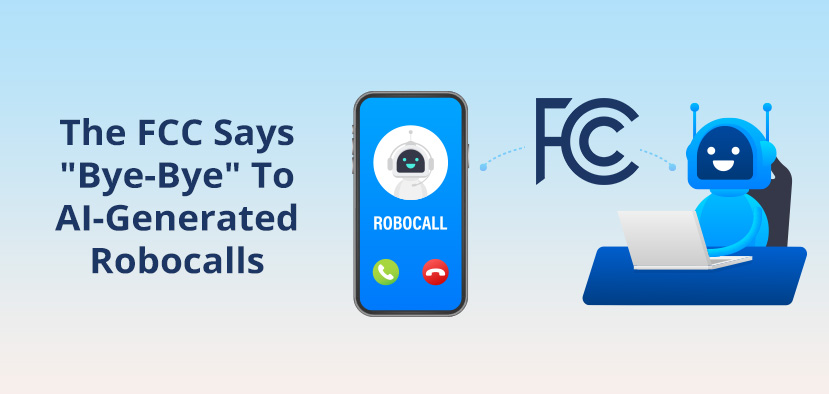Say Goodbye to AI-Generated Robocalls
February 16, 2024
1 min 44 sec read
We all know how annoying those spam-spewing robocalls are, and now the
Federal Trade Commission (FCC) has taken measures to protect us from them. On February 8, the FCC wrapped up details regarding its plan to ban robocalls featuring voices generated by artificial intelligence to stop the influx of AI-generated misinformation and outright scam campaigns.

The FCC announced the "unanimous adoption of a Declaratory Ruling that recognizes calls made with AI-generated voices are "artificial under the Telephone Consumer Protection Act (TCPA)." The FCC's declaratory ruling formalized its position that the TCPA, particularly the provision that prohibits the initiation of calls "using an artificial pre-recorded voice to deliver a message without the prior express consent of the called party," applies to those AI-generated voices that are fast becoming a nuisance to us all.
More than a nuisance, however, the FCC believes that robocalls are a real danger.
FCC Chairwoman Jessica Rosenworcel said, "Bad actors are using AI-generated voices in unsolicited robocalls to extort vulnerable family members, imitate celebrities, and misinform voters. We're putting the fraudsters behind these robocalls on notice. State Attorneys General will now have new tools to crack down on these scams and ensure the public is protected from fraud and misinformation."
The FCC initiated a Notice of Inquiry in November of 2023 to find ways the agency could stop illegal robocalls, with the aim of learning how AI would be a player in the scamming business by mimicking the voices of celebrities, loved ones, and other familiar voices. The goal was to decide if the technology should be under the TCPA law.
Further, the FCC explored how AI can be used as a weapon by recognizing illegal robocalls before they ever reach consumers on the phone. Basically, good AI versus bad AI.
Now the TCPA makes it mandatory for businesses to get "prior express written consent from consumers before robocalling them, and businesses must now obtain consent for automated telemarketing calls using AI-generated voices."
Any business that plans to use AI in its marketing calls using automated dialing systems should review and update "applicable disclosures and consents to account for the FCC's new ruling and limit potential liability under the TCPA."
What will actually be done about those companies that don't comply?
The TCPA gives the FCC civil enforcement authority to fine robocallers. The Commission can also block calls from telephone carriers that partake in illegal robocalls. Additionally, the TCPA lets consumers or organizations bring lawsuits against robocalls, and State Attorneys General have their own enforcement tools to further keep the robocalls in line.
And if all else fails, we can always call Robocop.
Want to read this in Spanish?
Spanish Version >>
